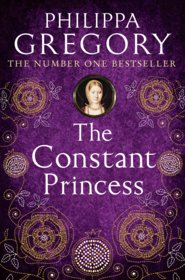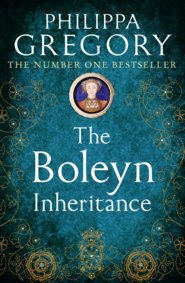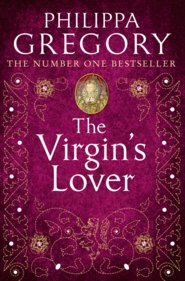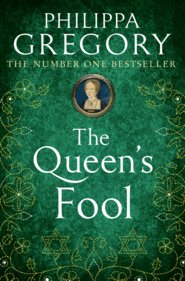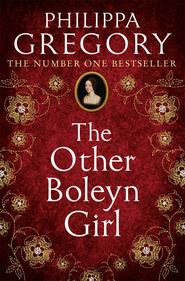По всем вопросам обращайтесь на: info@litportal.ru
(©) 2003-2025.
✖
Earthly Joys
Настройки чтения
Размер шрифта
Высота строк
Поля
‘I suppose oranges are not impressive,’ he said. ‘Not to Spaniards who live in orange groves.’
Cecil was about to agree but he hesitated. ‘How many oranges could we muster?’
John thought of the three mature trees, one placed at the centre of each court. ‘Would you strip the trees of all their fruit?’ he asked.
Cecil nodded.
John swallowed at the thought of the sacrifice. ‘A barrel of fruit. By August, perhaps two barrels.’
Cecil slapped him on the shoulder. ‘That’s it!’ he cried. ‘The whole point is that we show them that they have nothing which we need. We give them great boughs of oranges and that shows them that anything they have, we can have too. That we are not the supplicants in this business but the men of power. That we have all of England and orange orchards too.’
‘Boughs?’ John asked, going to the central point. ‘You don’t mean to pick the fruit?’
Cecil shook his head. ‘It is a gift for the king to give to the Spanish ambassador. It has to look wonderful. A barrel of oranges could have been bought on the quayside, but a great branch of a tree with the fruit on it – they will see that it has been fresh-cut by the quality of the leaves. It has to be boughs laden with fruit.’
John, thinking of the savage hacking of his beautiful trees, suppressed an exclamation of pain. ‘Certainly, my lord,’ he said.
Cecil, understanding at once, hugged Tradescant around the shoulders and planted a hearty kiss on his cheek. ‘John, I have had men lay down their lives for me with an easier heart. Forgive me, but I need a grand gesture for the king. And your oranges are the sacrificial lamb.’
John reluctantly chuckled. ‘I’ll wait till I hear then, my lord. And I’ll cut the fruit and send it up to London as soon as you order.’
‘Bring it yourself,’ Cecil directed him. ‘I want no mistake, and you of all men will guard it as if it were your firstborn son.’
August 1604 (#ulink_99aebcf6-0511-55c6-adad-8391be110301)
John’s oranges were the centre of the feast to celebrate the peace. King James and Prince Henry held bibles and swore before the nobles and the Spanish ambassadors that the Treaty of London would install a solemn and lasting peace. In a glorious ceremony de Velasco toasted the king from an agate cup set with diamonds and rubies and then presented him with the cup. Queen Anne at his side had a crystal goblet and three diamond pendants.
Then King James nodded to Cecil, and Cecil turned to where Tradescant was behind him and John Tradescant walked forward bearing in his arms, almost too great a weight to carry, a great spreading bough of oranges, their leaves glossy and green with drops of water like pearls still rolling on the central vein, their fruit round, scented like oil of sunshine, blazing with colour, ripe and fleshy. The king touched the bough and at his gesture Tradescant laid it at the Spanish ambassador’s feet as two of his lads laid another and then another in a heap of ripe wealth.
‘Oranges, Your Majesty?’ the man exclaimed.
James smiled and nodded. ‘In case you were feeling homesick,’ he said.
De Velasco threw a quick look back at his entourage. ‘I had no idea that you could grow oranges in England,’ he said enviously. ‘I thought it was too cold here, too damp.’
Robert Cecil made a casual gesture. ‘Oh, no,’ he replied nonchalantly. ‘We can grow anything we desire.’
A page came through the crowd, carrying a great pannier of fruit, and another followed him with a basket. In pride of place, nestling amid some aromatic southernwood leaves, was a large pale melon.
‘Wait a minute,’ said John. ‘Let me see that.’
The page was in Lord Wootton’s livery. ‘Let me pass,’ he said urgently. ‘I am to present this to the king to give to the Spanish ambassador.’
‘Where’s it from?’ John hissed.
‘From Lord Wootton’s garden at Canterbury,’ the lad replied and pushed through.
‘Lord Wootton’s gardener can grow melons?’ John asked. He turned to his neighbour, but no-one but John cared one way or the other. ‘How does Lord Wootton grow melons at Canterbury?’
The question remained unanswered. In a nearby inn John sought out Lord Wootton’s gardener, who merely laughed at him and said there was a trick to it but John would have to join Lord Wootton’s service if he wanted to learn it.
‘D’you plant them in the orangery?’ John guessed. ‘D’you have an earth bed inside?’
The man laughed. ‘The great John Tradescant asking me for advice!’ he mocked. ‘Come to Canterbury, Mr Tradescant, and you shall learn my secrets.’
John shook his head. ‘I’d rather serve the greatest lord in the greatest gardens in England,’ he said loftily.
‘Not the greatest for long,’ the gardener warned him.
‘Why? What d’you mean?’
The gardener drew a little closer. ‘There are those who are saying that he has signed his own letter of resignation from service,’ he said. ‘Now that Spain is at peace with England, who can doubt that the lords who stayed with the true faith through all the troubles will come back to court? They’ll find their places at court again.’
‘Catholics at court?’ John demanded. ‘With a king like ours? He’d never bear it.’
The man shrugged. ‘King James is not the old queen. He likes differences of opinion. He likes to dispute with them. Queen Anne
herself takes the Mass. My own lord takes the Mass when he is abroad and avoids the English church whenever he can. And if he is high in the king’s favour, giving him melons and the like, then the tide is turning. And stout old defenders of the faith like your lord may find their time has gone.’
John nodded, bought the man another ale, and left the tavern to find Cecil.
His master was in one of the courtyards at Whitehall, about to board his barge to take him upriver to Theobalds.
‘Ah, John,’ he said. ‘Will you come home with me by water or travel back with the wagon?’
‘I’ll come with you, if I may, my lord,’ John said.
‘Get your bag then, for we leave at once, I want to catch the tide.’
John hurried to fetch his things and came back as the barge was preparing to cast off. The rowers stood at salute, their oars raised. The Cecil pennant flew at bow and stern. Robert Cecil was seated amidships, a canopy over his head and a rug at his side to ward off the evening chill. John leaped nimbly aboard and sat at the rear of the boat behind the golden chair.
The boatmaster cast off and the rowers started the regular beat, beat of their rowing, the oars splashing in the water and the boat pulling forward and then resting, pulling and then resting. It was a soporific, lulling movement, but John kept his eyes on his master.
He saw the head flecked with premature grey hair nod and then sink. The man was exhausted after months of painstaking negotiation and unending civility, mostly conducted in a foreign language. John drew a little closer and watched over his master’s sleep as the sun went down before them and painted the sky gold and peach, and turned the river into a shining path which took them slowly and steadily back to their garden.
When the sky grew darker blue and the first stars came out, John reached for his lord and gathered the blanket around his crooked shoulders. The man, the greatest statesman in the land, probably the greatest in Europe, was as light as a girl. His head lolled to John’s shoulder and rested there. John gathered his lord to him and guarded his rest as the boat went quietly on the inward-flowing tide all the way up the river.
Just before the Theobalds landing stage Cecil awoke. He smiled to find John’s arms around him.
‘A warm pillow you’ve been to me this evening,’ he said pleasantly.
‘I did not want to disturb you,’ John replied. ‘You looked weary.’
‘Weary as a dog after a whipping,’ Cecil yawned. ‘But I can rest now for a few days. The Spanish are gone, the king will return to Royston for the hunting. We can prune our orange trees back into shape, eh John?’
‘There’s one thing, my lord,’ John said cautiously. ‘A thing that I heard and thought I should tell you.’
Cecil was instantly awake, as if he had never dozed at all. ‘What thing?’ he asked softly.







